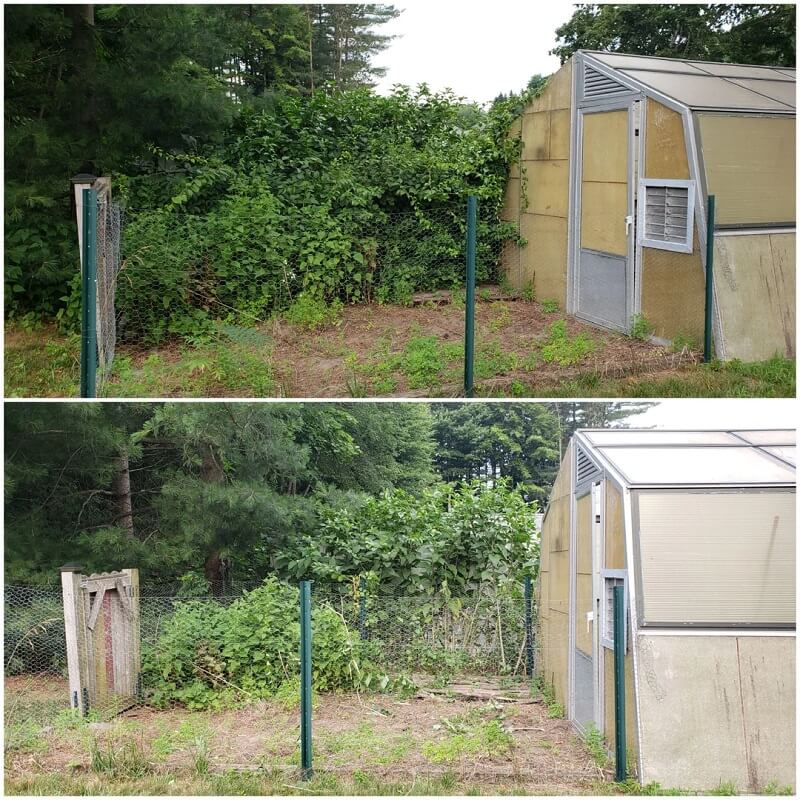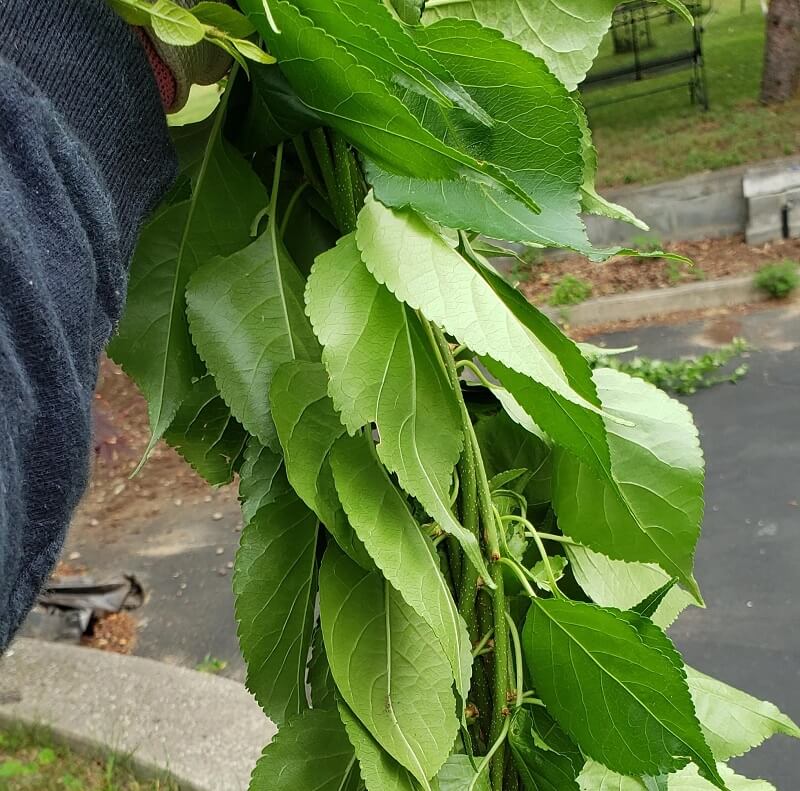One gardener recently took to the r/NativePlantGardening subreddit to share triumphant before-and-after photos of their backyard after spending years removing an invasive plant species.
"Inspired by another person's 'Invasive Plant Removal Day,' today was the day to tackle the [round-leaved] bittersweet invading the disused Greenhouse that came with our house," the poster wrote.


Round-leaved bittersweet, also known as climbing spindle berry and a few other names, is native to Eastern Asia and was brought to the United States as an ornamental and for erosion control sometime in the 1860s, according to the Department of Agriculture's National Invasive Species Information Center.
Unfortunately, as a non-native species, it is not adapted to fit healthily into the Northeastern and Midwestern U.S. ecosystems where it has spread, growing as a vine that smothers plants and uproots trees with its weight. For the original poster, the bittersweet was in danger of choking their pokeweed (a plant species that sounds bad, but isn't) to death.
They described the process of removing the bittersweet in detail, writing, "Once I fought my way in with hedge clippers, I discovered substantial clearance between the base of the vines and the large pokeweeds, so I cut them all free. A few branches lost to the effort will be worth it if they don't die. Sprayed the remaining several low inches of bittersweet stems and leaves with my back to the pokeweed. Hope that saves them."
Whenever you're gardening, it is very important to do some research and make sure you're planting native species, which support local pollinators and the ecosystem and are adapted to the region so that they can coexist healthily in harmony with one another.
These low-maintenance plants are also easy on the wallet, as they require no fertilizers, less water, and fewer pesticides.
As was the case with the bittersweet, once invasive plants are introduced, they can be incredibly difficult to remove completely, with the process sometimes taking multiple years and a lot of hard work.
The other members of the r/NativePlantGardening subreddit were quick with the encouragement.
"Great work!" wrote one.
"Good for you for removing it!" wrote another.
Join our free newsletter for easy tips to save more and waste less, and don't miss this cool list of easy ways to help yourself while helping the planet.









